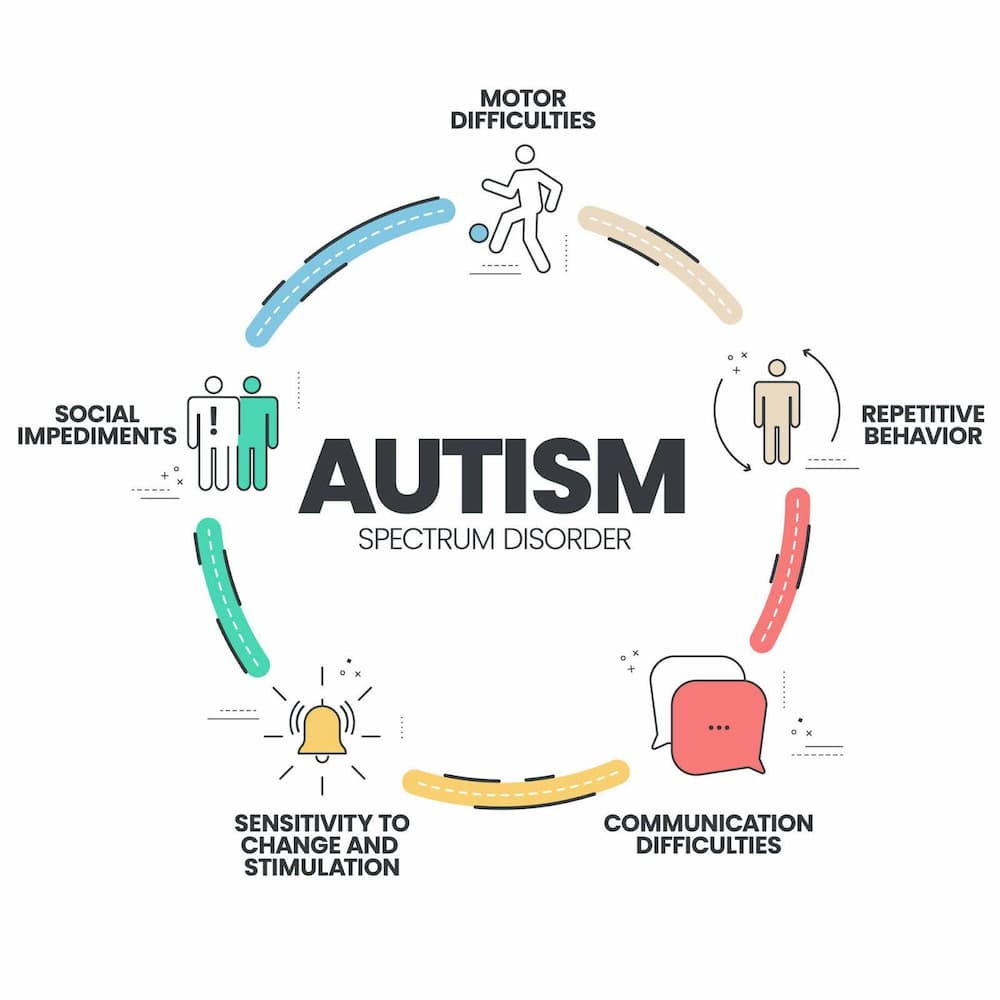The Impact of Very Early Intervention on Children with Autism: What Parents Need to Know
The Impact of Very Early Intervention on Children with Autism: What Parents Need to Know
Blog Article
Sustaining Individuals With Autism: Ideal Practices in Education And Learning and Addition
The support of people with autism within educational settings demands a nuanced understanding of best methods that advertise addition and effective knowing. Highlighting structured settings, tailored teaching methods, and collaborative efforts among family members and instructors can considerably boost the academic experience for students on the range.
Recognizing Autism Range Problem
Autism Range Condition (ASD) is an intricate neurodevelopmental problem defined by a series of obstacles in social interaction, interaction, and habits. autism. Individuals with ASD might show a range of qualities and signs, typically leading to a special profile of strengths and troubles. The spectrum nature of the problem means that signs and symptoms can vary substantially in severity, with some individuals requiring substantial support while others might operate independently
ASD usually manifests in early childhood, with signs often visible by the age of two or three. Common attributes consist of difficulties in comprehending social signs, difficulties in engaging in reciprocatory discussions, and a choice for routines or repetitive habits. Sensory sensitivities are also widespread, impacting how individuals procedure and respond to sensory input from their atmosphere.
Understanding these attributes is crucial for fostering reliable assistance techniques. Exact recognition of ASD symptoms can bring about timely interventions that can substantially improve a person's quality of life. Additionally, acknowledging the diverse methods which the disorder materializes helps teachers, caretakers, and experts tailor their approaches to satisfy the unique needs of each individual on the autism spectrum.
Creating Inclusive Learning Settings
Developing a comprehensive discovering atmosphere is vital for sustaining people with Autism Spectrum Condition and promoting their scholastic and social success. Such environments focus on acceptance, understanding, and partnership among all pupils, promoting a feeling of belonging. This strategy requires the energetic engagement of teachers, moms and dads, and peers, creating a neighborhood that values diversity and inclusivity.
To accomplish inclusivity, physical class arrangements should suit numerous sensory demands, giving quiet locations and adaptable seating choices. Visual supports, such as routines and sign cards, can assist comprehension and predictability, crucial for numerous pupils with autism. In addition, executing organized regimens and clear expectations assists lower anxiety and improves discovering possibilities.
Partnership amongst team is important. Educators ought to take part in ongoing professional development to much better understand autism and its effects for discovering. Creating partnerships with specialized specialists, such as speech therapists and physical therapists, can additionally boost the support provided to pupils.
Inevitably, promoting a comprehensive learning atmosphere not just advantages pupils with autism yet enriches the educational experience for all students, advertising compassion, respect, and a much deeper understanding of individual distinctions. This cumulative initiative is crucial for cultivating a encouraging and appealing academic atmosphere.
Efficient Instructing Techniques
To effectively sustain individuals with Autism Spectrum Problem in the classroom, educators should utilize a variety of teaching techniques that provide to the special learning designs and requirements of these trainees. One effective method is the usage of aesthetic aids, such as diagrams, charts, and photographs, which can boost understanding and retention of information. These tools assist clear up complex ideas and offer a reference factor for trainees.
In addition, executing structured routines and clear assumptions can develop a sense of security and predictability, which is critical for several people with autism. It is likewise click over here useful to integrate hands-on knowing chances, as these experiences can cultivate involvement and practical application of abilities.
Separated direction ought to be a cornerstone of training strategies, enabling instructors to customize lessons to individual strengths and obstacles. In addition, utilizing social stories can aid in developing social skills and comprehending social signs, connecting interaction voids.
Lastly, regular responses and favorable reinforcement can enhance and inspire trainees wanted actions. By integrating these techniques, instructors can produce a effective and inclusive learning setting that supports the development and growth of pupils with Autism Range Disorder.
Teaming Up With Families and Neighborhoods
Effective collaboration with households and neighborhoods plays an important role in sustaining individuals with Autism Range Condition. Involving them in the decision-making procedure makes certain that educational methods are tailored to individual staminas and challenges.
Institutions ought to help with open communication networks, such as regular meetings, workshops, and comments sessions, to cultivate a sense of area and trust fund. Additionally, involving area organizations can provide accessibility to resources Your Domain Name and assistance solutions that expand past the class, boosting social opportunities and ability advancement for individuals with autism.
Specialist advancement for educators must also highlight the significance of household engagement and neighborhood cooperation. Educating on culturally receptive methods can help educators better recognize and integrate varied family members perspectives. Eventually, a collective method not just equips households but additionally enhances the learning experiences of individuals with autism, developing a supportive environment that promotes their total wellness and success.
Supporting Social Abilities and Communication
Advertising social skills and interaction is necessary for individuals with Autism Spectrum Disorder, as these abilities are fundamental for building relationships and browsing social contexts. Reliable approaches for boosting social expertises include structured social skills training, peer-mediated interventions, and the usage of social tales.
Social skills training programs can be tailored to attend to details deficiencies such as initiating discussions, comprehending non-verbal signs, and taking turns during communications. These programs commonly integrate role-playing circumstances to offer useful experience and responses. Additionally, peer-mediated interventions, where normally establishing peers are involved, can assist like it in naturalistic social interactions, cultivating an encouraging setting for people with autism.

Additionally, developing inclusive settings in schools and area settings urges chances for social involvement - autism. By promoting understanding and acceptance amongst peers, the capacity for significant communications boosts, eventually resulting in higher social competence and emotional well-being for people with autism

Conclusion
In verdict, executing best practices for supporting people with autism in instructional settings is crucial for cultivating inclusion and understanding. Structured regimens, aesthetic help, and collaboration amongst instructors, households, and neighborhood companies boost discovering experiences and address private demands.
The support of individuals with autism within instructional setups requires a nuanced understanding of ideal practices that promote addition and efficient knowing.Developing an inclusive understanding atmosphere is essential for sustaining people with Autism Spectrum Condition and advertising their social and academic success.To effectively support people with Autism Spectrum Disorder in the classroom, educators should use a variety of mentor methods that cater to the special learning designs and requirements of these trainees.Efficient cooperation with family members and areas plays a vital duty in sustaining individuals with Autism Range Problem - autism. In addition, peer-mediated treatments, where normally developing peers are included, can assist in naturalistic social communications, promoting an encouraging atmosphere for people with autism
Report this page